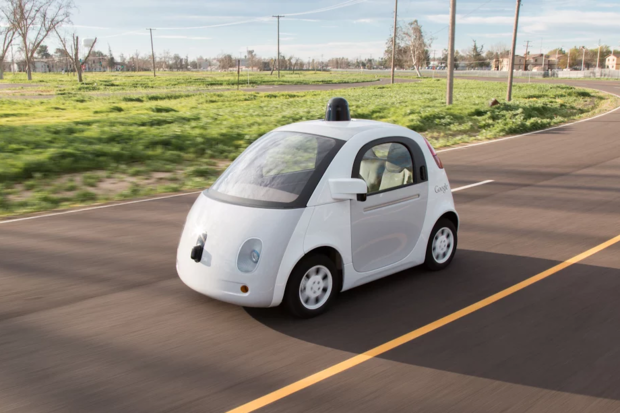Driverless cars hit the road, almost hit each other
Google said last month that its prototype driverless cars would hit the streets of Mountain View, Calif. this summer, and Thursday the company announced that "a few of them are now cruising around town."
The timing was kind of funny: That the same day, Reuters reported that an executive of Delphi -- which is also testing autonomous cars in the area -- said that on Tuesday a self-driving Google car cut off one of its vehicles as it was about to change lanes. (The companies later shared a slightly different version of the story.)
According to the article, John Absmeier, director of Delphi's Silicon Valley lab was riding in one of Delphi's prototype Audi Q5 crossovers. As it prepared to change lanes, one of Google's fleet of 20 retrofitted Lexuses "cut off the Audi, forcing it to abort the lane change." The Delphi car "took appropriate action," Absmeier told Reuters, and both cars emerged without a scratch.
A Delphi spokesperson, speaking to Ars Technica, clarified Absmeier's description, saying that the Reuters report misconstrued the situation:
"Our car saw the Google car move into the same lane as our car was planning to move into, but upon detecting that the lane was no longer open it decided to terminate the move and wait until it was clear again."
The spokesperson, Kristin Kinley, also said, "It wasn't a 'near miss' as described in the Reuters story."
Whether you call it a near miss or not, the fact that no crash took place when one easily could have (with or without a human at the wheel) was a big win for both cars. As CNET senior editor Jeff Bakalar put it, "There was no collision right? So the story is that everyone's fine." Crash avoidance in both cars worked.
Google's takeaway was pretty much the same. In a statement to CBS News a spokesperson said, "The headline here is that two self-driving cars did what they were supposed to do in an ordinary everyday driving scenario -- one car yielded to another."
Since September, when California passed a law requiring computer-driven cars to be registered for use on public roads, four of Google's self-driving Lexuses have been involved in 11 fender benders. "Not once was the self-driving car the cause of the accident," Chris Urmson, the director of Google's self-driving car project, said last month.
The Lexus fleet is now being overtaken by the rollout of Google's new prototype, which uses the same software but was designed from the ground up to drive sans driver.
This article was updated to include Delphi's response to the Reuters report and a statement from Google.
